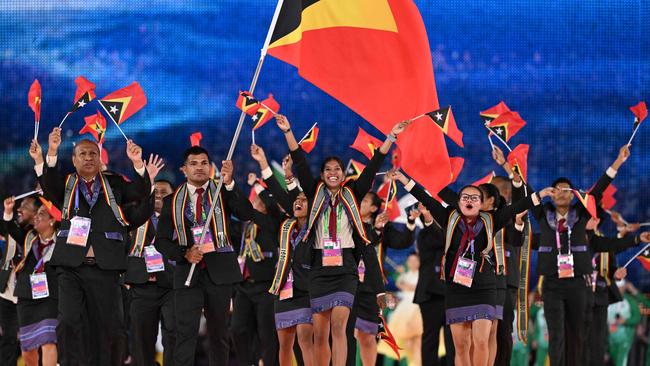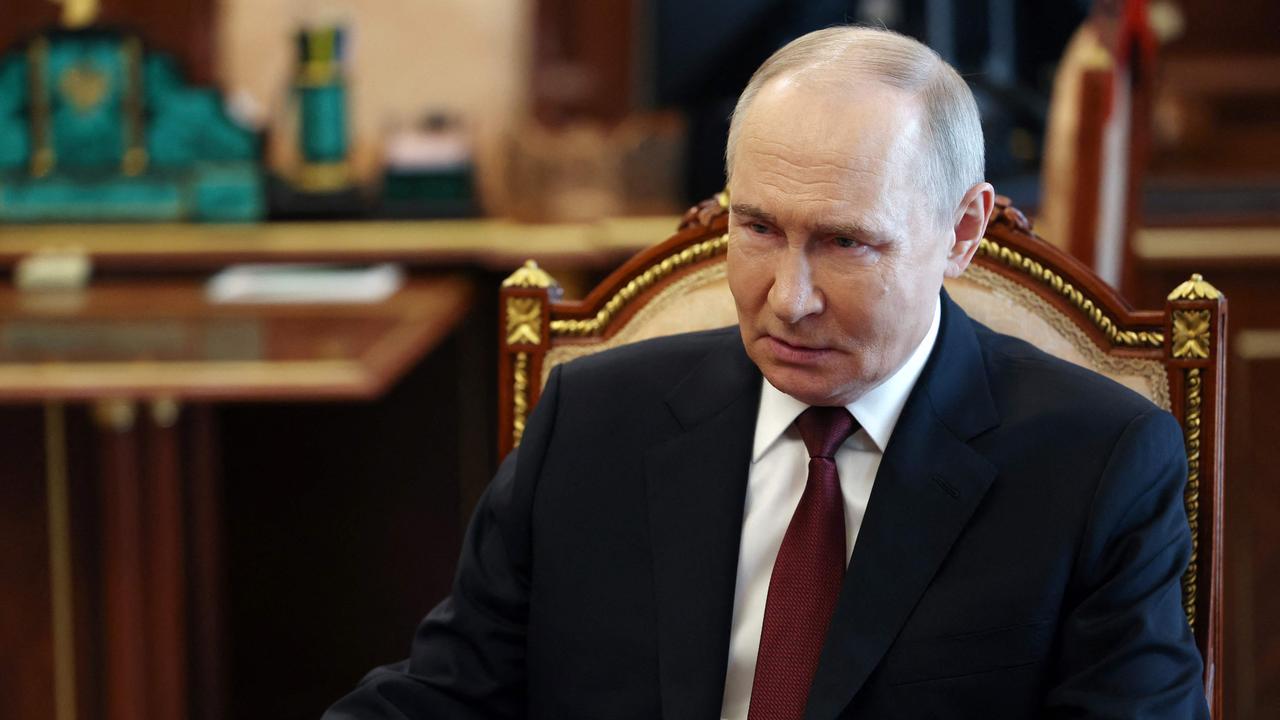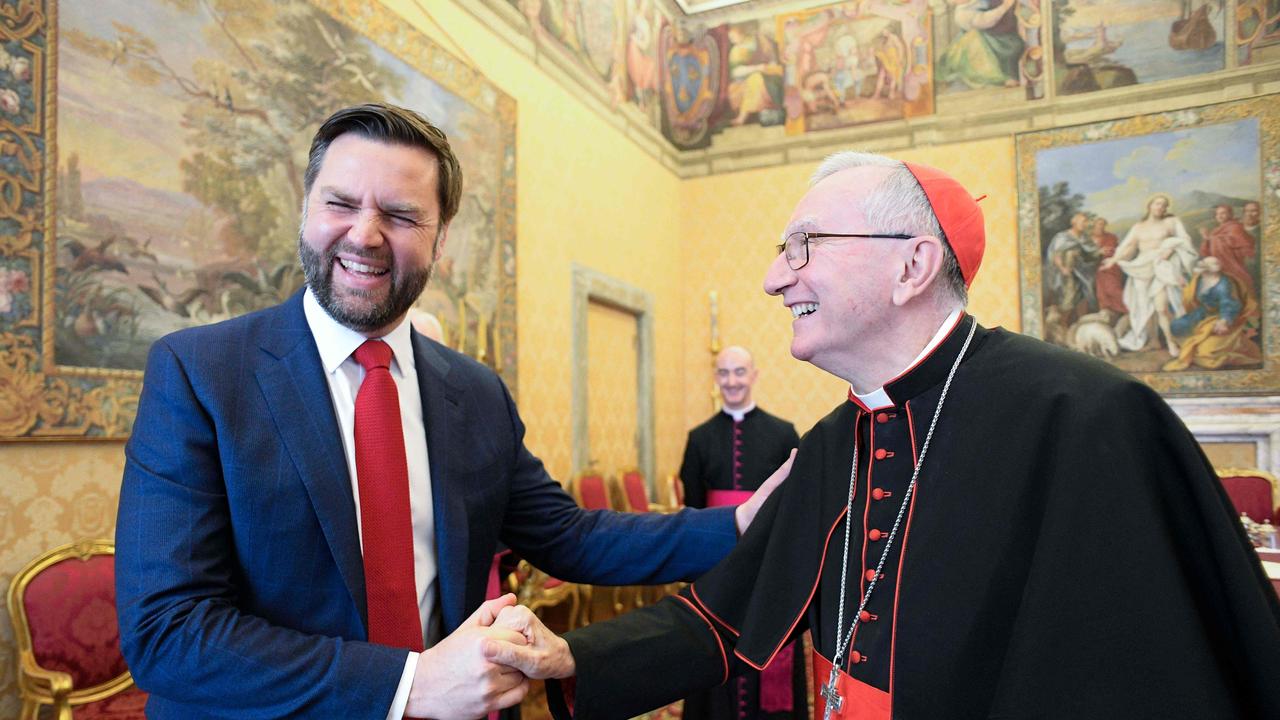
How much the Albanese government knew about Dili’s decision to elevate its relationship with Beijing to a comprehensive strategic partnership before the announcement was made in China on Saturday is unclear.
Foreign Minister Penny Wong, who was in New York over the weekend for the UN General Assembly, has not yet commented on the agreement, which includes a commitment to enhance “high-level military engagement” between the two countries.
But the fact her 15-month frenzy of Pacific engagement may not have entitled her to a courtesy call from our closest geographic neighbour before the announcement should be cause for concern.
Last year, Wong accused the former Morrison government of having “dropped the ball” in the Pacific over the Solomon Islands decision to sign a security agreement with China. But it was under her watch in July that the two nations signed their own CSP and law enforcement pact allowing a greater Chinese police presence in the country, one that could potentially see Beijing replace Australia as the Solomons’ provider of choice for police training and backup.
Prime Minister Manasseh Sogavare’s decision to skip US President Joe Biden’s second annual summit for Pacific Island Forum nations at the White House on Monday suggests his controversial pivot to China is complete.
Vanuatu also declined, though for domestic reasons. Sato Kilman faced a no-confidence vote in parliament on Monday.
Biden expressed disappointment at the Solomons snub after Sogavare used his weekend speech to the UN general assembly in New York to praise China’s development co-operation as “less restrictive, more responsive and aligned to our national needs”.
But Beijing’s triumphant unveiling of closer ties with Dili less than a day later raises a potentially thornier problem given East Timor’s geographic proximity to Australia. Australia is still Timor’s largest international donor, and a trusted provider of services there.
But Canberra does not have a comprehensive strategic partnership with Dili, even as it has been busy elevating ties with key Southeast Asian partners.
Does it matter?
That remains to be seen. It depends on how much a more risk-averse China is willing to invest in East Timor’s infrastructure ambitions, and what level of economic and diplomatic dependency that leads to for Dili.
Beijing is determined to build a global south alliance that will fall in behind its leadership and vision of a new multilateralism not dominated by the wealthy West, and presumably less troubled by considerations of human rights and democracy.
That includes the Pacific Islands which Australia, the US and New Zealand have for decades seen as their sphere of influence.
The US-led Indo-Pacific partnership, with Australia, Japan, the UK and others, is equally determined to counter Beijing’s growing influence – though minus the considerable carrot of China’s Belt and Road Initiative.
Like its neighbours in ASEAN – a regional bloc of which it is soon to become a member – East Timor insists it wants to be friends with everyone.
But it is running out of time to find an investor willing to help it develop its last great fossil fuel resource – the Greater Sunrise oil and gas fields in the Timor Sea – before its Petroleum Wealth Fund is exhausted and it has no way to finance its modest annual budget.
Negotiations with its private partners, Australia’s Woodside and Japan’s Osaka Gas, have gone nowhere for decades as Dili has struggled to convince them of the feasibility of its ambitions to pipe the liquid natural gas from the Timor Gap and process it onshore.
Can anyone really blame Dili for seeing China – with its BRI infrastructure money – as a possible alternative?
Albanese government critics will no doubt criticise Wong’s weekend UNGA attendance as yet another international junket.
That would be a cheap shot.
Australia must be seen to be supporting Pacific Island nations – in particular their climate concerns – in that forum, and to be putting money where its mouth is if it wants to be seen as their partner of choice.
Successive federal governments must share the blame for dropping the ball on East Timor, and the Pacific more broadly.
Dili may have forgiven Canberra for the treaty with Jakarta that divided the oil and gas spoils of the Timor Sea between the two nations; for opting out of a UN maritime boundary jurisdiction tribunal before East Timor gained independence; and for bugging its ministerial offices to gain advantage in negotiations over resources in the Timor Sea.
But it most certainly has not forgotten.




Australia looks to have been blindsided by East Timor’s move to upgrade ties with China at the weekend, leaving Canberra with a new and urgent problem on its doorstep.